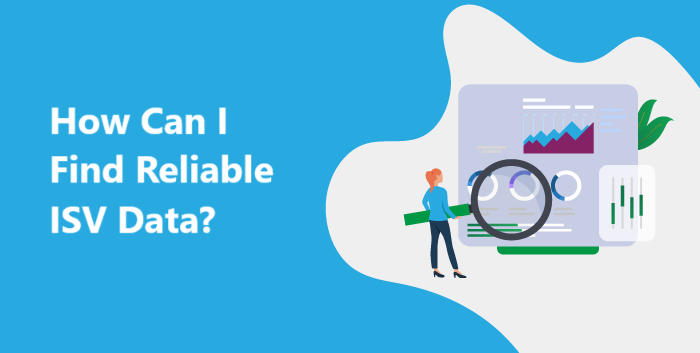It seems that not only are new review platforms popping up all over the place these days, but we’ve all become critics. From travel to restaurants to product reviews, more and more sites are giving users the ability to write about their experiences and share them with millions of viewers the world over. While review platforms are key in our personal lives (I hardly ever go to a restaurant anymore without looking at the reviews prior), are they really influential when making business decisions? How are we supposed to know what reviews to trust? Do we go by quantity of reviews or by detail? Where can we find the best review platforms?
In the business world, finding new software solutions can be a daunting task. Reading through information (e-books, whitepapers, product brochures, infographics) when more content is available than ever before, and taking the time to evaluate solution demos only to find that the product isn’t really what you’re looking for, can be painful. While review platforms for software are not a new concept, they are becoming more influential sources of information for prospects looking to take the leap. The rise in B2B SaaS solutions is only making the need for reviews that much more relevant as they take the idea of word-of-mouth recommendations to a whole new level.
In fact, a study made by Software Advice showed how large and small companies alike are influenced by online software reviews before purchasing solutions. According to their study, 87% of large companies and 70% of small ones said they consult reviews before making a purchase. Northwestern’s Spiegel Research Center found that marketers using reviews properly for brand awareness can increase conversions by up to 270%. Sound too good to be true? Perhaps, but buyers trust reviews. And brands that respond to reviews show they are listening and care about their customers. This results in increased brand trust, which often gives consumers the confidence boost they need to convert from prospect into a customer.
So, how can you improve your marketing strategy through the use of review platforms? Here are some ideas to consider:
See things through your users’ eyes
You may think you know your product’s strong points, but hearing it from the users’ mouths may provide useful insight which could inspire improvements to feature sets. Most reviews are brutally honest so you should be able to see straight away what’s working well, and what’s not. This could help you improve your help-desk service, pre and post-sales cycle, enhance your solution with new functionalities, or adapt your marketing efforts to cater to an industry sector you hadn’t thought about previously. It may also help you to improve your key selling points or marketing messages to better align product promises with end-user expectations. Staying in tune with what your customers are saying about you will enable you to get closer to them, and in the end, service them better.
Use reviews as a starting point for win-loss interviews
Win-loss interviews can provide powerful competitive intelligence for your organization. Looking at your competitors’ reviews in relationship to yours, then digging deeper to really understand the factors behind why you won or lost business, is an essential part of any good marketing strategy. Being able to consistently run win-loss interviews over time can help uncover important trends both from a sales perspective and a technical one. This critical step can help significantly improve your sales conversion rates.
Encourage your clients to champion your brand
I’ve seen a lot of brands that promise gift certificates or cash-back for leaving reviews on platforms. While I’m not a fan of these types of promises (when I love a product I don’t need a $10 Starbucks card to get me to leave a nice review), it is good to encourage users to engage in creative ways. Your clients can become champions of your brand — and they’ll do so willingly and with little incentives required if they love your product. Just point them in the right direction to get them started, and then leverage the results by allowing users to post their reviews on their own personal social media pages for additional coverage.
Display reviews and ratings on your website (even the negative ones)
While it may sound counter-intuitive, negative reviews can have a positive impact on your brand because they help establish credibility and authenticity. (Of course, if all of your reviews are negative, you may have a bigger problem on your hands, but if there’s a small percentage, don’t be afraid to post them on your website). Choosing not to feature reviews may help your competition more than you’d like. When given the choice between two similar products, people will more often choose the brand that has reviews over the one that doesn’t. And reviews from “verified buyers” carry more weight than anonymous ones, so just having a larger pool of reviews is not always better in-and-of-itself either.
Here are some review sites we find useful:
- G2crowd: Software reviews based on a unique grid scoring system
- SaaSGenius: Fast and efficient discovery of new SaaS tools
- Capterra: Software reviews in more than 300 categories
- SoftwareAdvice: Simple and intuitive software selection
- GetApp: A reliable B2B software review directory
- AppExchange: Popular marketplace of business apps
- IT Central Station: A crowdsourced review site
- FinancesOnline: Leading SaaS, B2B, and solutions review platform
And as an end-user, here are some important points to take into consideration when looking at solution reviews:
- Goal: What is it exactly that you want to get out of the reviews? What problem do you need a solution for? What is it exactly that you’d like to see more about in terms of the product (certain features, quality, conditions, customer base, reputation, etc)?
- Key features: Establish the key features that your company is looking for, especially when choosing an expensive, larger-scale solution or product. You may not need to use all the features available in a solution and therefore you may not have as high of an ROI as you’d like. Paying for a solution only to use a couple of features may not be the best use of your budget.
- Industry-appropriate: Make sure it caters to your industry, eg IT, retail, engineering, etc should that be a concern.
- Who wrote the review: You can look at many social media reviews or the comments sections on websites, however, be mindful of the person critiquing the product or solution. If you are after a quality and sound review it may be best to use review platforms as a formality to ensure that you are reading technical standpoints from technicians or people within the niche area themselves.
Conclusion
Reviews are becoming increasingly popular and common in order to assist consumers in their decisions. With seemingly endless online media options (forums, sites, formal review platforms, search engines, etc) you can make use of this opportunity to understand the perspectives of your end-users and provide better services.
Sources:
http://comparecamp.com/where-to-list-b2b-saas-software-products-heres-top-10-review-directories/
https://blog.hubspot.com/blog/tabid/6307/bid/33741/12-places-businesses-should-be-collecting-online-reviews.aspx
http://doublecheckresearch.com/why-its-important-to-know-what-your-customers-really-think-and-how-to-find-out/
http://go.g2crowd.com/reviews-for-buyer-intent-ebook.html
https://marketingland.com/survey-customers-more-frustrated-by-how-long-it-takes-to-resolve-a-customer-service-issue-than-the-resolution-38756
https://www.softwareadvice.com/








